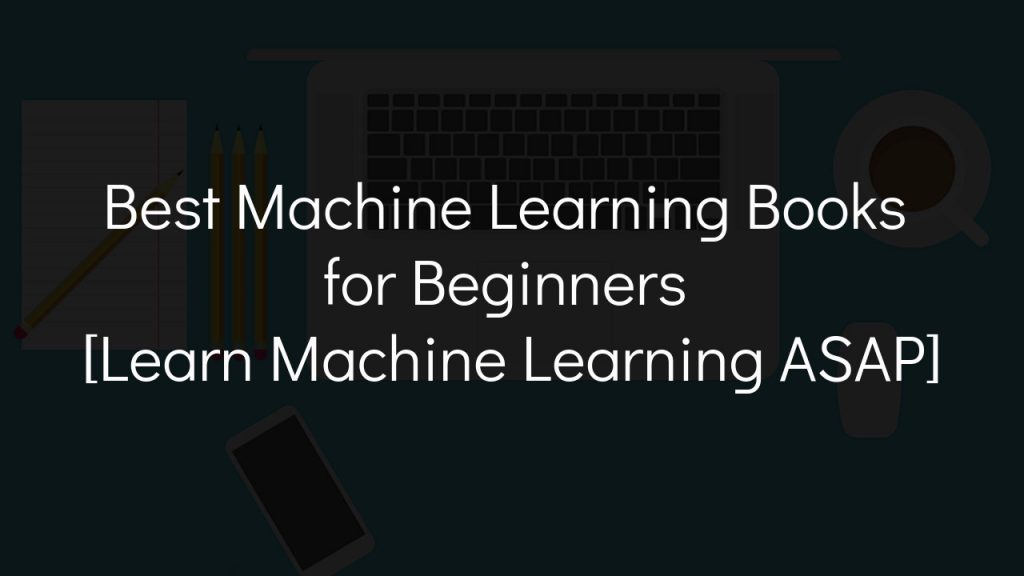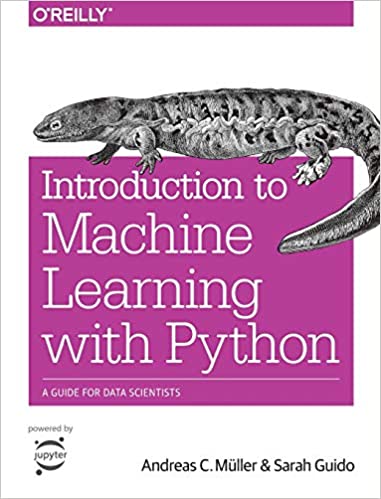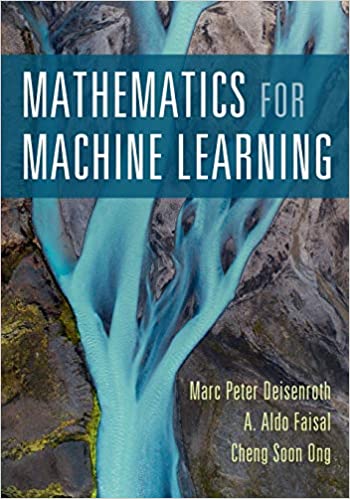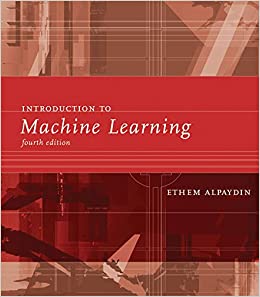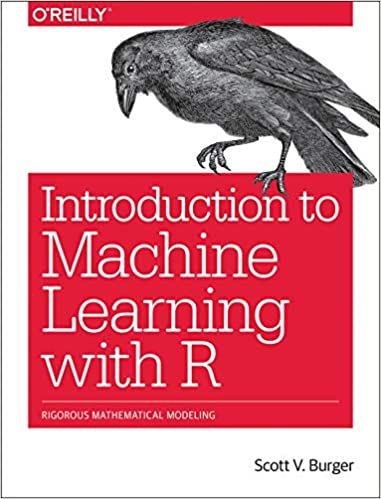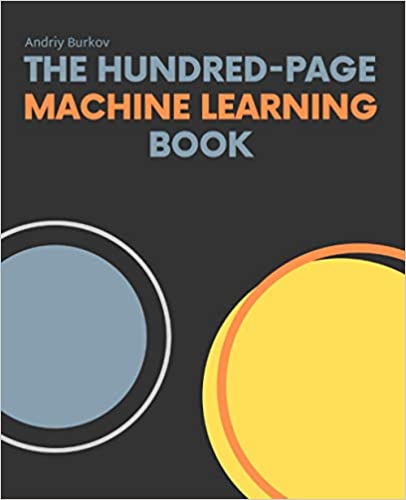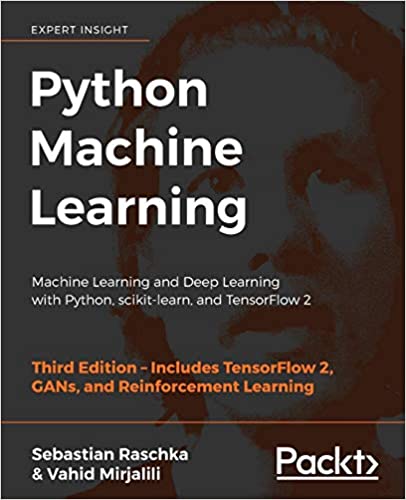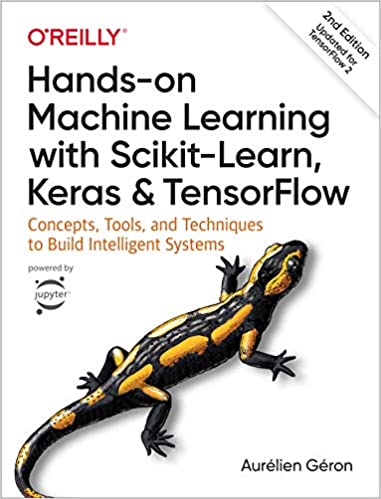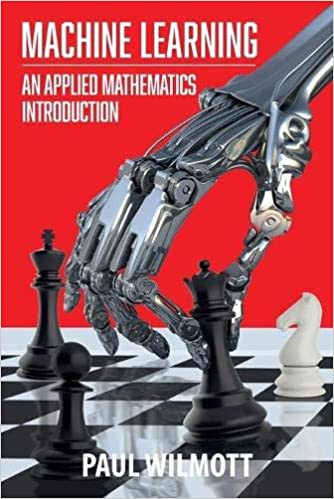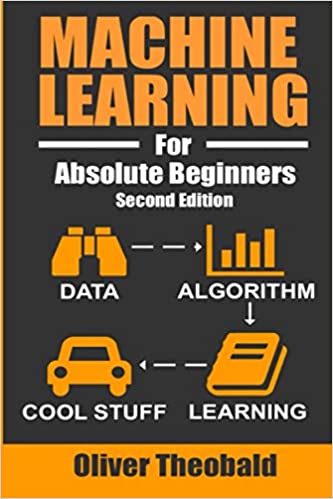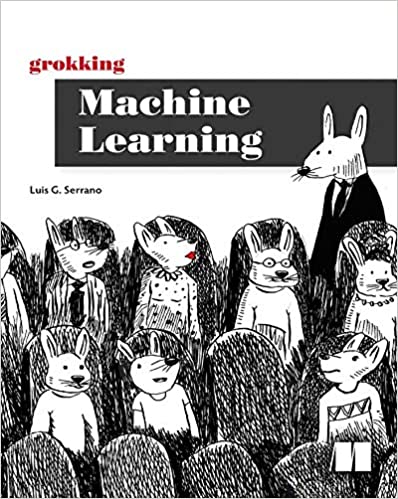TLDR: Best Machine Learning Books for Beginners
💥 Best for Newbies 💥
Introduction to Machine Learning with Python
💸 Best Value 💸
The Hundred-Page Machine Learning Book
10 Best Machine Learning Books for Beginners
Did you know the average salary for a machine learning engineer is nearly $150,000?
It’s never been a better time to enter this lucrative career field.
But how do you become a machine learning engineer?
Books are an efficient, economical place to start. We found 10 machine learning books that are exploding with information. 💥

Now we say these are the best machine learning books for beginners. But keep in mind that you should have some programming experience before pursuing machine learning.
1. Introduction to Machine Learning with Python
↘️ Authors: Andreas Muller, Sarah Guido
↘️ Publisher: O’Reilly
↘️ Ideal for: machine learning newbies with Python experience
↘️ Major topics covered: machine learning fundamentals and applications
🍷 Pairs well with the course Learn the Basics of Machine Learning on Codecademy Pro.
In Introduction to Machine Learning with Python, you’ll learn how to build machine learning applications with Python and scikit-learn. Instead of focusing on math, you’ll discover the practical aspects of machine learning algorithms. You can expect to gain deeper insights if you’re familiar with libraries like NumPy and matplotlib.
💡 Scikit-learn is a Python machine learning library. It includes classification, regression and clustering algorithms. It’s designed to operate alongside NumPy and SciPy.
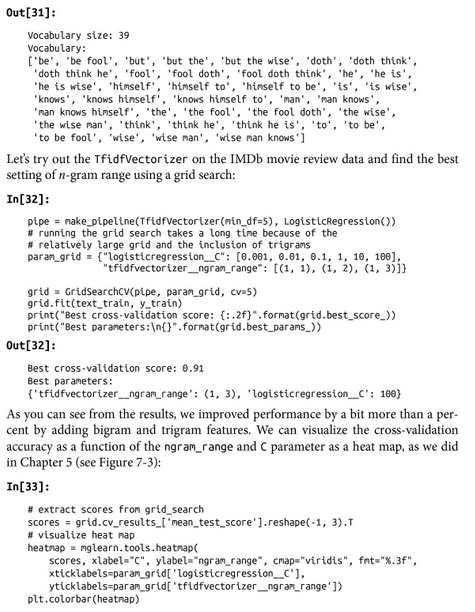
2. Mathematics for Machine Learning
↘️ Authors: Marc Peter Deisenroth, A. Aldo Faisal, Cheng Soon Ong
↘️ Publisher: Cambridge University Press
↘️ Ideal for: beginner and experienced mathematics students
↘️ Major topics covered: linear algebra, probability, statistics
You’ll find that Mathematics for Machine Learning bridges the gap between mathematics and machine learning. In addition to learning algebra, probability and statistics, you’ll dive into machine learning methods such as linear regression and support vector machines. You’ll find plenty of examples and exercises throughout to strengthen intuition and practical experience.
Nick considers it a machine learning favorite:
3. Introduction to Machine Learning, 4th Edition
↘️ Author: Ethem Alpaydin
↘️ Publisher: The MIT Press
↘️ Ideal for: advanced undergraduate and graduate students
↘️ Major topics covered: deep learning, neural networks, supervised learning
🍷 Pairs well with the course Machine Learning Basics on Treehouse.
In Introduction to Machine Learning, you’ll discover a variety of introductory machine learning topics covered such as supervised learning, deep learning and neural networks. You’ll also explore linear algebra and optimization. There are plenty of exercises you’ll work on that cover both theory and practice of machine learning. This book is ideal for college students.
4. Introduction to Machine Learning with R
↘️ Author: Scott V. Burger
↘️ Publisher: O’Reilly
↘️ Ideal for: beginner+ R programmers
↘️ Major topics covered: regression modeling, neural networks, tree-based methods
With Introduction to Machine Learning with R, you’ll discover regression modeling. Then you’ll graduate to more advanced concepts like neural networks and tree-based methods. Finally, you’ll explore machine learning algorithms for supervised and unsupervised cases.
Philip has this to say:
5. The Hundred-Page Machine Learning Book
↘️ Author: Andriy Burkov
↘️ Publisher: Andriy Burkov
↘️ Ideal for: machine learning newbies
↘️ Major topics covered: support vector machines, regression, deep learning
🍷 Pairs well with the course Machine Learning for All on Coursera.
Unlike other shorter machine learning books, The Hundred-Page Machine Learning doesn’t skimp on math equations. In addition, you’ll learn the essentials of machine learning such as regression, support vector machines and deep learning. Some of the algorithms are illustrated using Python code.
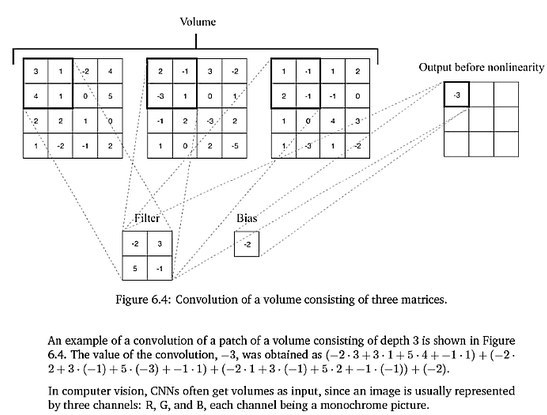
6. Python Machine Learning, 3rd Edition
↘️ Authors: Sebastian Raschka & Vahid Mirjalili
↘️ Publisher: Packt Publishing
↘️ Ideal for: machine learning newbies with Python experience
↘️ Major topics covered: deep learning, reinforcement learning, TensorFlow 2
In Python Machine Learning, you’ll dive deep into the theory and practice of Python machine learning. Acting as a step-by-step tutorial, you’ll learn essential machine learning principles and techniques. You’ll also discover scikit-learn for machine learning and TensorFlow 2 for deep learning.
💡 TensorFlow 2 is an open-source library for machine learning with a focus on training deep neural networks.
… Belongs on the bookshelf of anyone learning or using ML.
– Engineer, Customer
7. Hands-On Machine Learning with Scikit-Learn, Keras, and TensorFlow
↘️ Author: Aurelien Geron
↘️ Publisher: O’Reilly
↘️ Ideal for: machine learning beginners with Python experience
↘️ Major topics covered: scikit-learn, Keras, TensorFlow
With Hands-on Machine Learning with Scikit-Learn, Keras & TensorFlow, you’ll discover the most popular frameworks used for machine learning. You’ll learn techniques such as linear regression and progression. There are ample examples and exercises to help you train and scale deep neural networks.
💡 Keras is an open-source Python library used for developing deep learning models. It acts as an interface for the TensorFlow library.
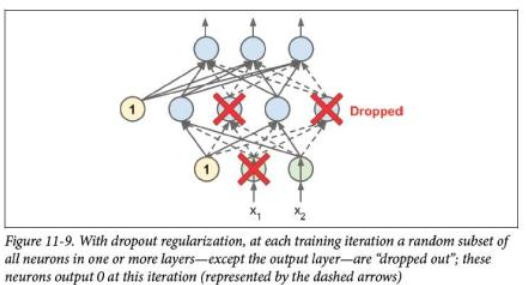
8. Machine Learning: An Applied Mathematics Introduction
↘️ Authors: Paul Wilmott
↘️ Publisher: Panda Ohana Publishing
↘️ Ideal for: students experienced in matrix algebra and calculus
↘️ Major topics covered: regression, neural networks, reinforcement learning
Machine Learning: An Applied Mathematics Introduction uses real-world examples such as economics, politics and biology to understand the foundations of mathematics in machine learning. You’ll discover K Means clustering, Naive Bayes, support vector machines, and beyond.
9. Machine Learning For Absolute Beginners
↘️ Author: Oliver Theobald
↘️ Publisher: N/A
↘️ Ideal for: absolute newbies with no coding experience
↘️ Major topics covered: machine learning libraries, neural networks
Machine Learning for Absolute Beginners is unique in that there’s no coding experience required, though you will become introduced to Python programming. After learning about machine learning libraries, you’ll discover data-scrubbing techniques, regression, clustering, and beyond. While this is a great start, you’ll need to read more books or take courses to master machine learning.
… It is clear, concise. A great source for beginners…
– Peetah, Customer
10. Grokking Machine Learning
↘️ Author: Luis Serrano
↘️ Publisher: Manning Publications
↘️ Ideal for: machine learning newbies with Python experience
↘️ Major topics covered: spam detection, language analysis and image recognition
🍷 Pairs well with the course Machine Learning for Everyone on DataCamp.
In Grokking Machine Learning, you’ll use Python code and high school-level math to apply machine learning to your projects. With plenty of pictures and examples, you’ll build models for spam detection, language analysis and image recognition.
Best Machine Learning Books for Beginners: Conclusion
Today we looked at the best machine learning books for beginners:
💥 Best for Newbies 💥
Introduction to Machine Learning with Python
💸 Best Value 💸
The Hundred-Page Machine Learning Book
So no matter what you’re looking for, we think we’ve found the best machine learning books for beginners.
Up Next:
- Best Machine Learning Courses for Beginners in 2021 [Bonus: Intermediate and Advanced Machine Learning Courses]
- 10 Best Big Data Books in 2021 [Learn Big Data ASAP]
- 11 Best Data Analysis Books in 2021 [Become a Data Analyst ASAP]
- 9 Best Data Science Courses for Beginners [+4 Data Science Learning Paths]
- Data Science for Non-Programmers [Educative Course Review 2021]
What are the best machine learning books for beginners?
For newbies, we recommend Introduction to Machine Learning with Python. And if you’re looking for value, we think The Hundred-Page Machine Learning books is the best.
Is the book The Hundred-Page Machine Learning worth it?
We think so. Unlike other shorter machine learning books, The Hundred-Page Machine Learning doesn’t skimp on math equations. In addition, you’ll learn the essentials of machine learning such as regression, support vector machines and deep learning. Some of the algorithms are illustrated using Python code.
Is the book Machine Learning for Absolute Beginners worth it?
Machine Learning for Absolute Beginners is unique in that there’s no coding experience required, though you will become introduced to Python programming. After learning about machine learning libraries, you’ll discover data-scrubbing techniques, regression, clustering, and beyond. While this is a great start, you’ll need to read more books or take courses to master machine learning.
